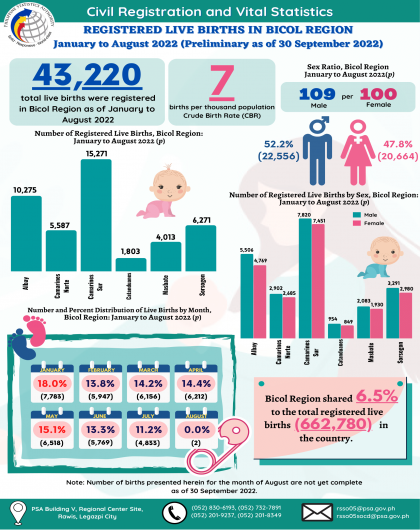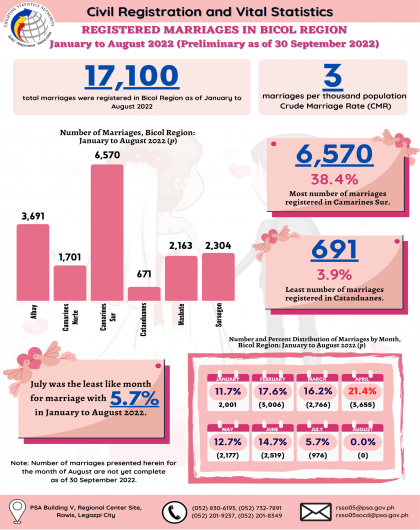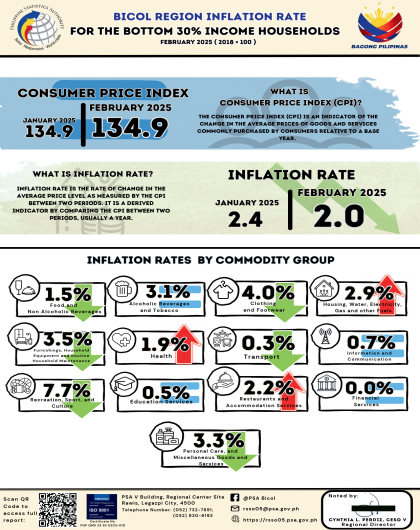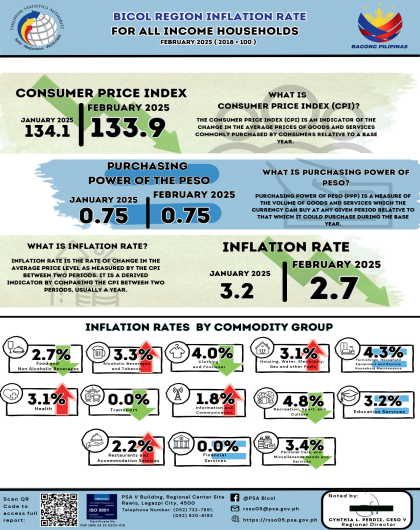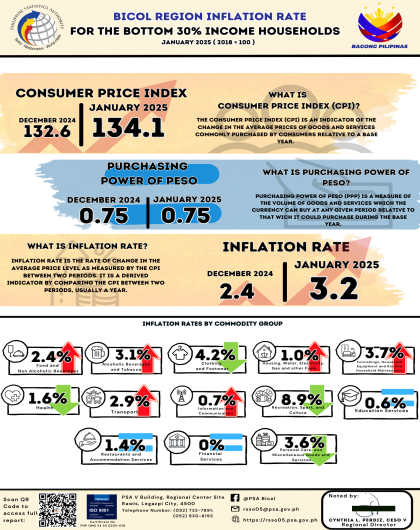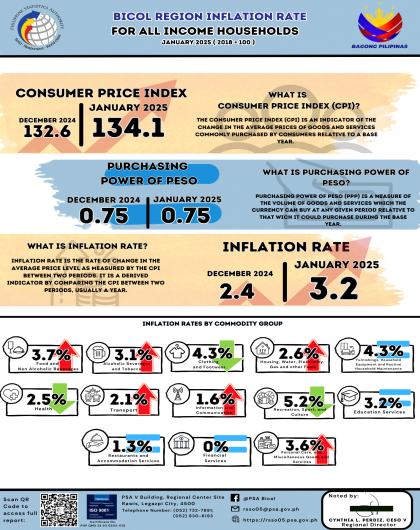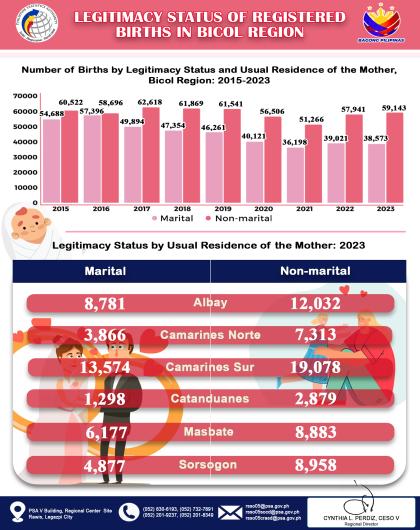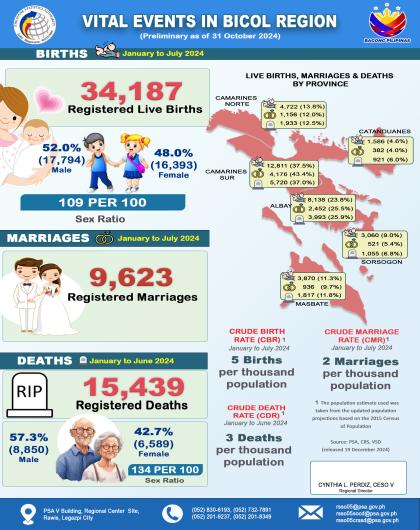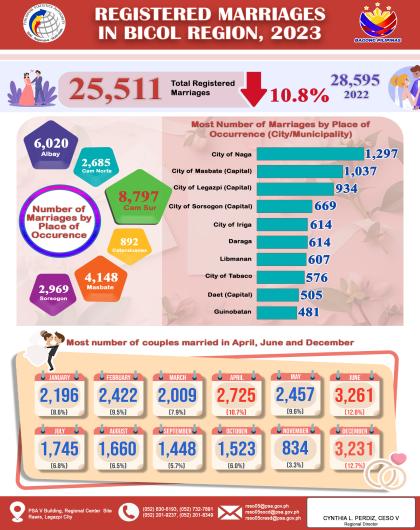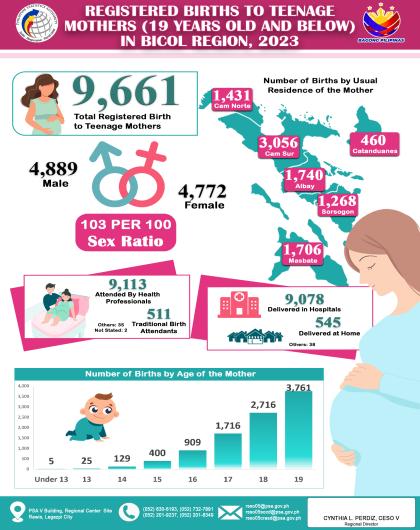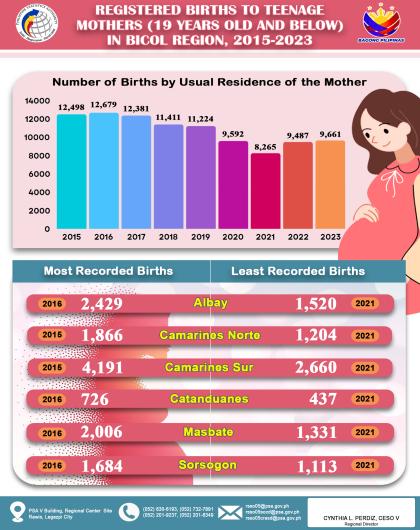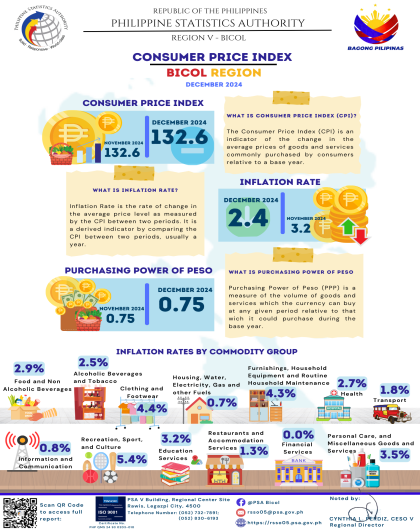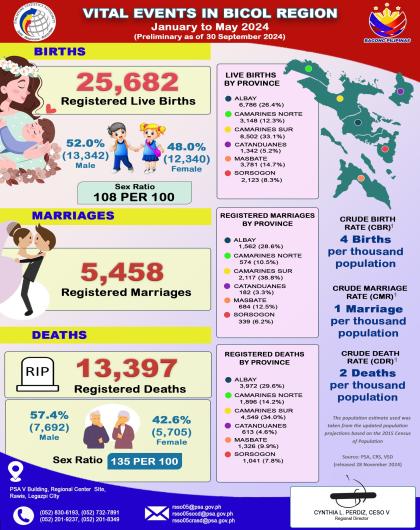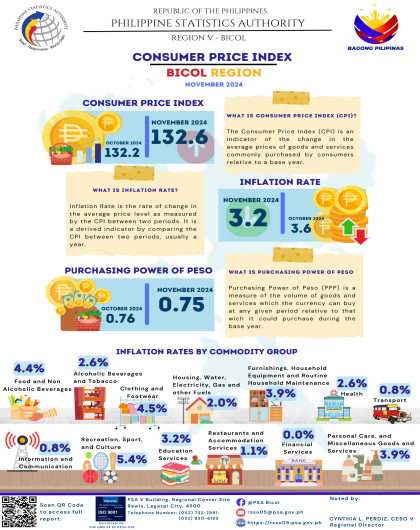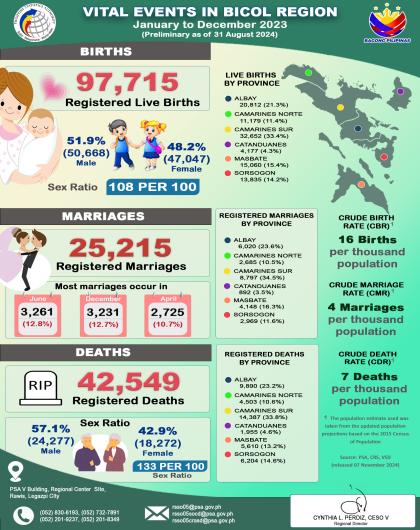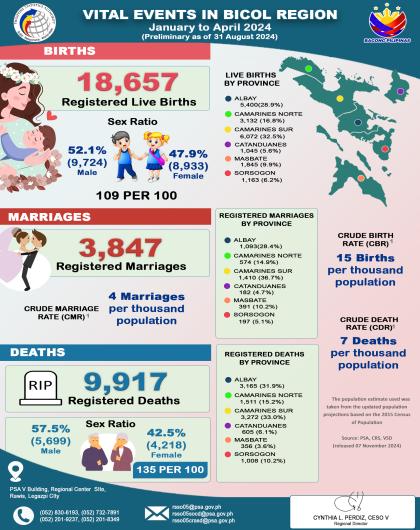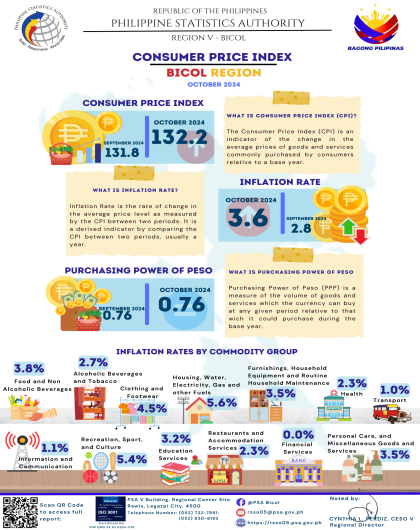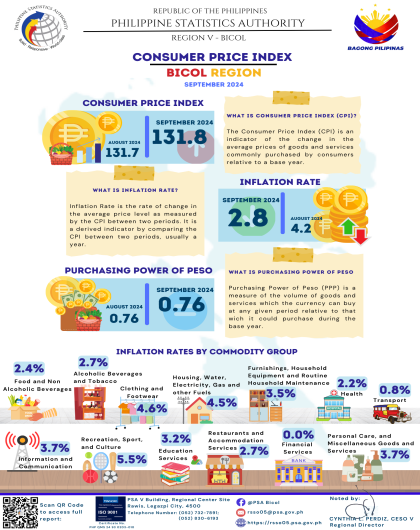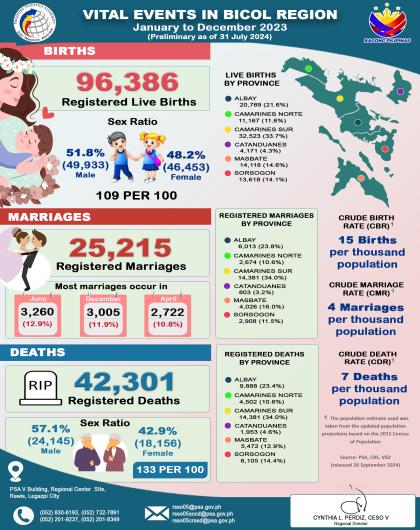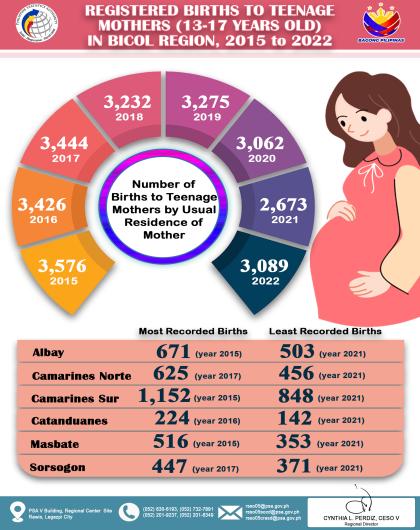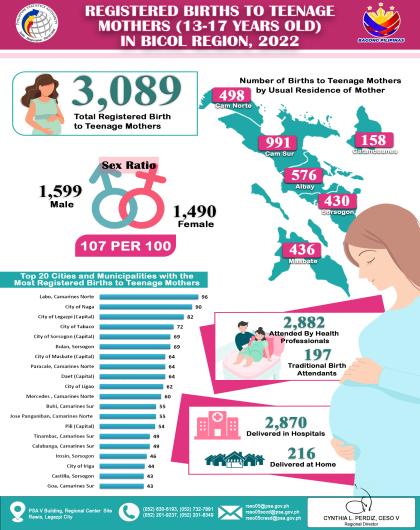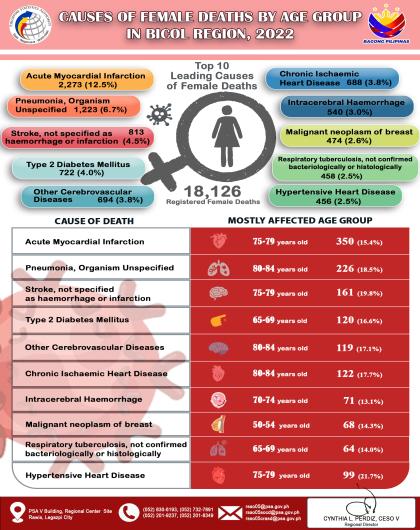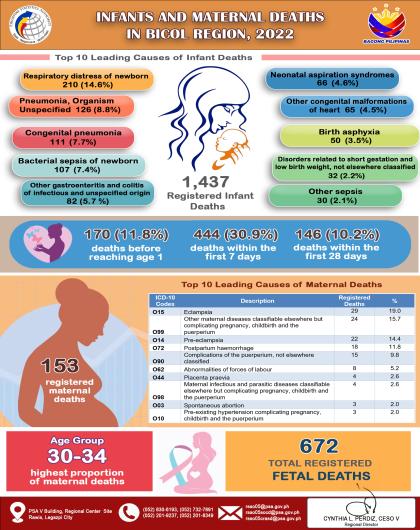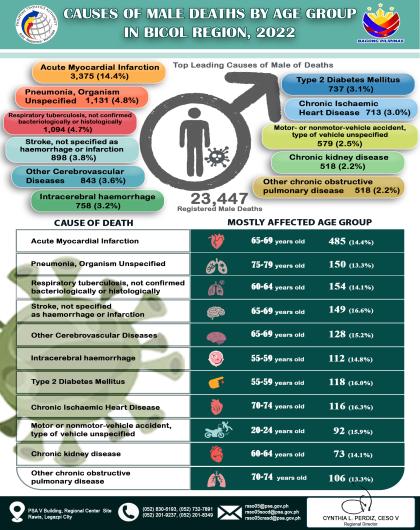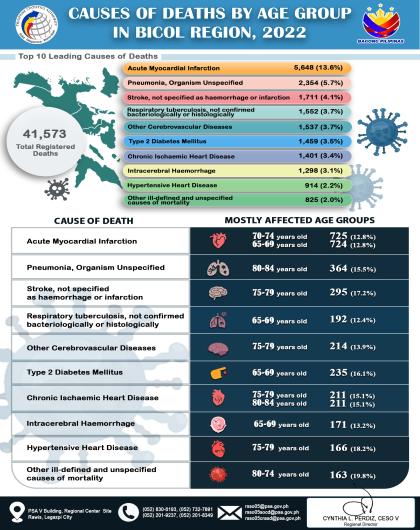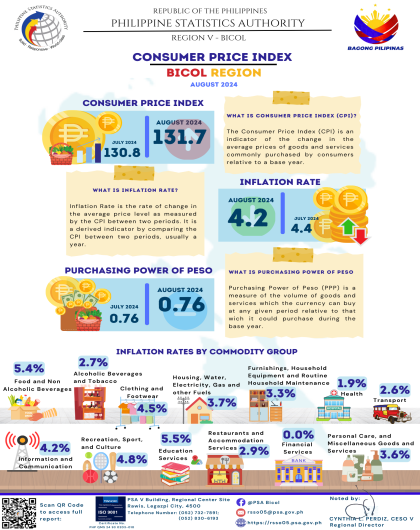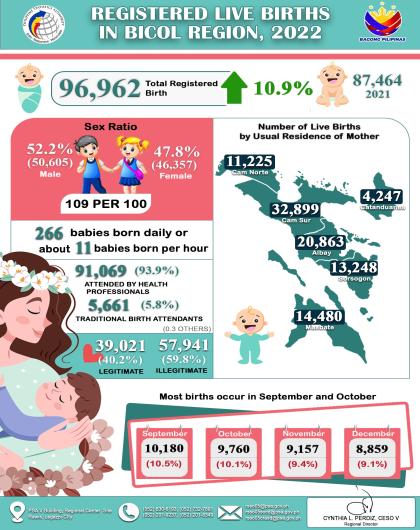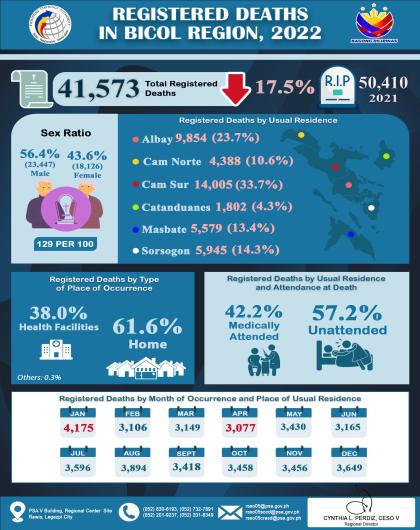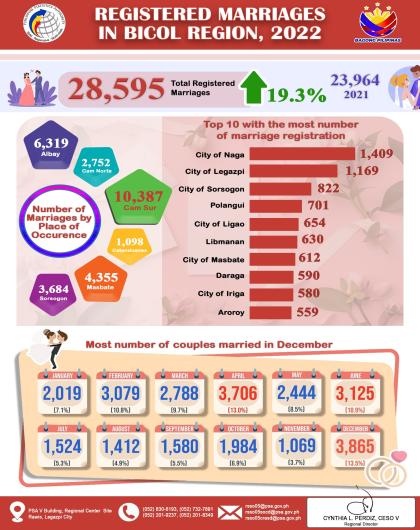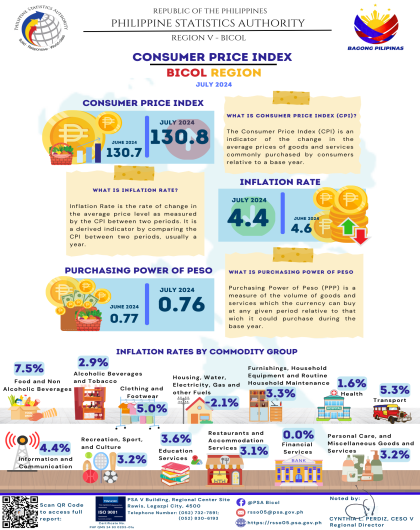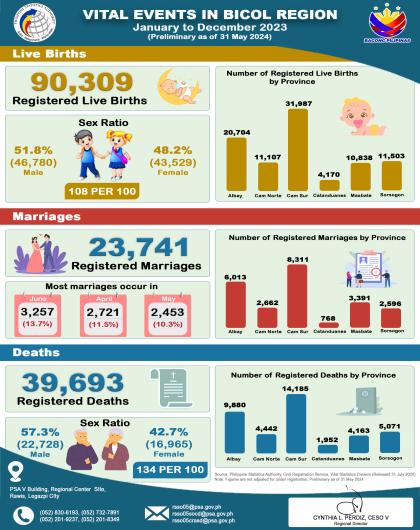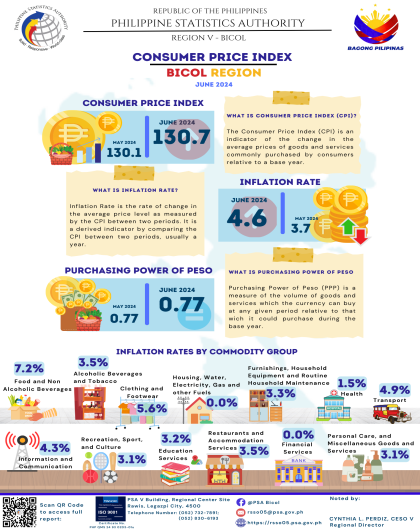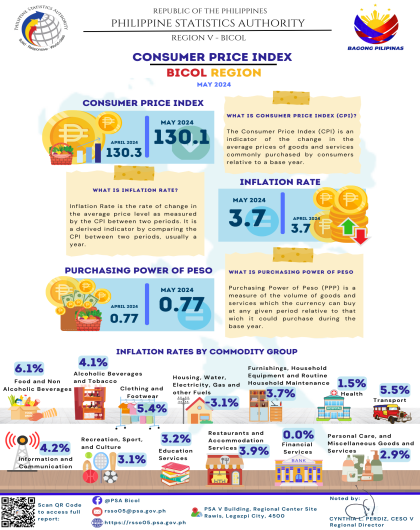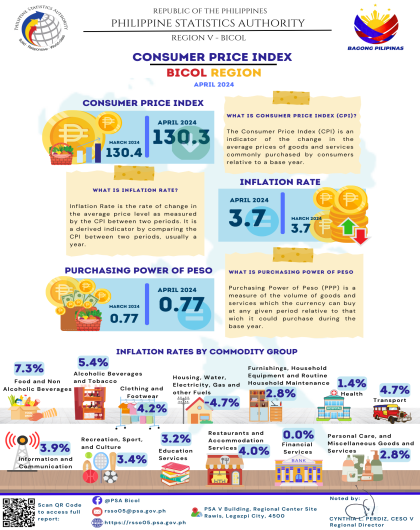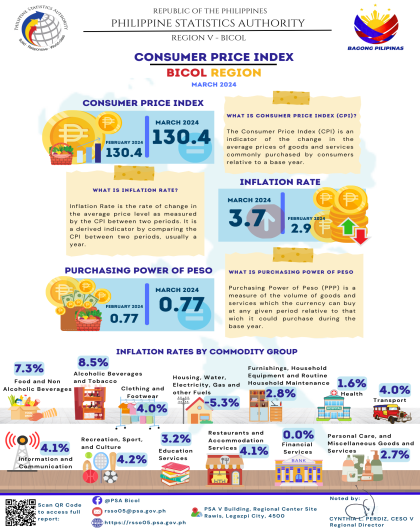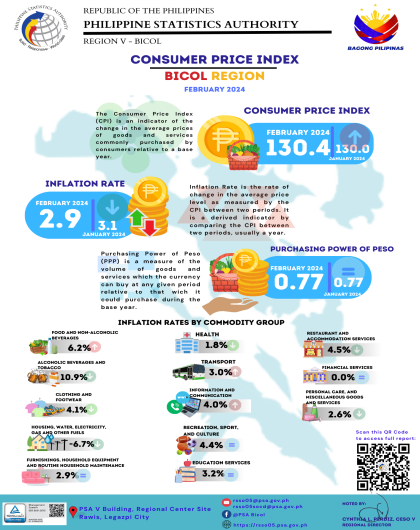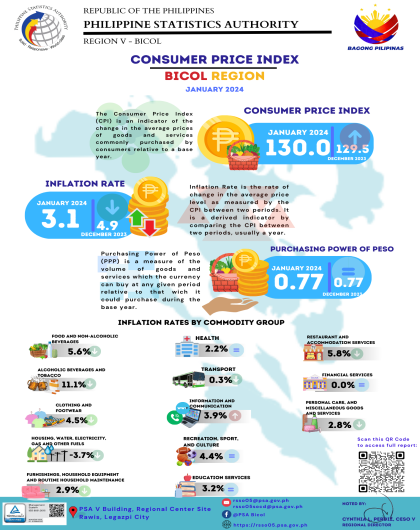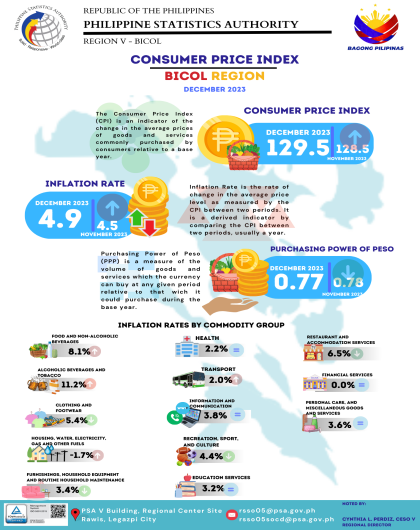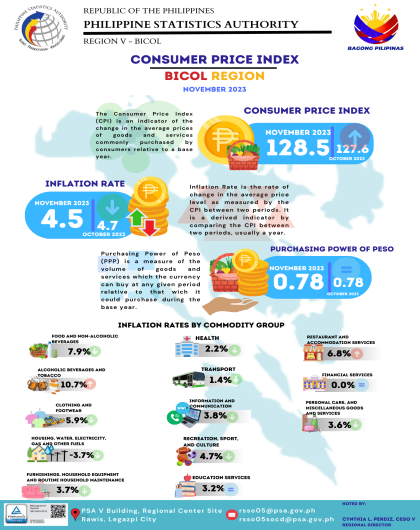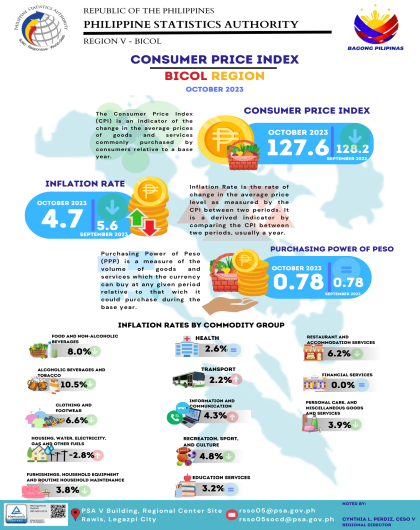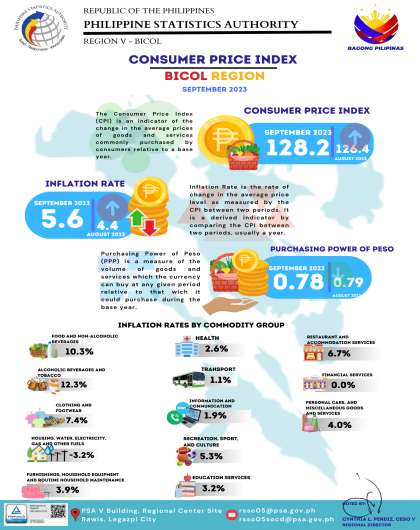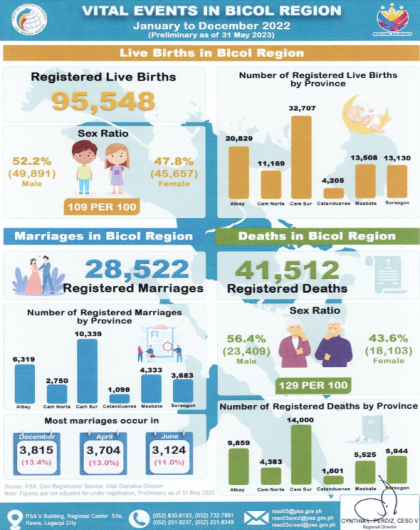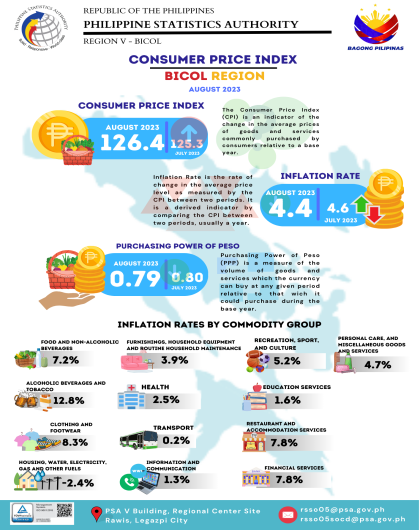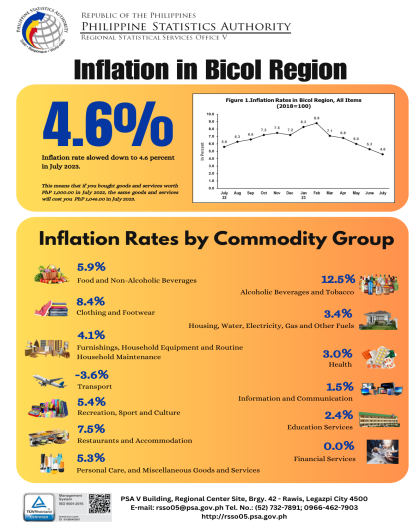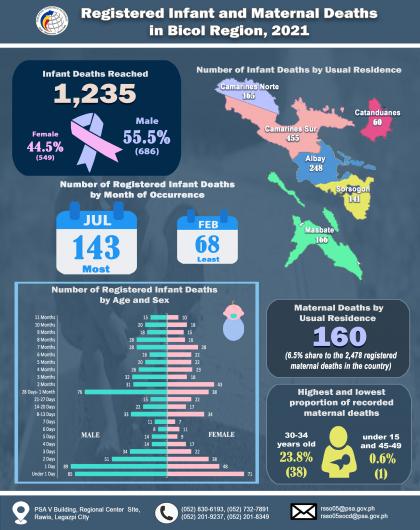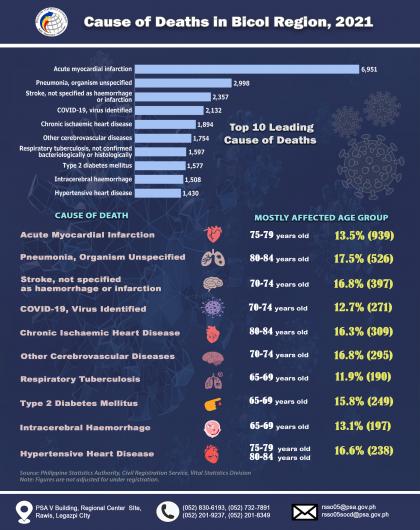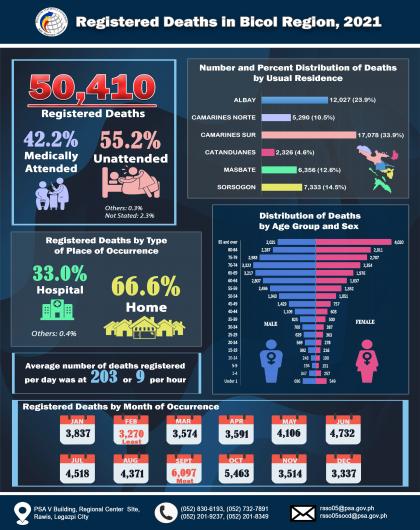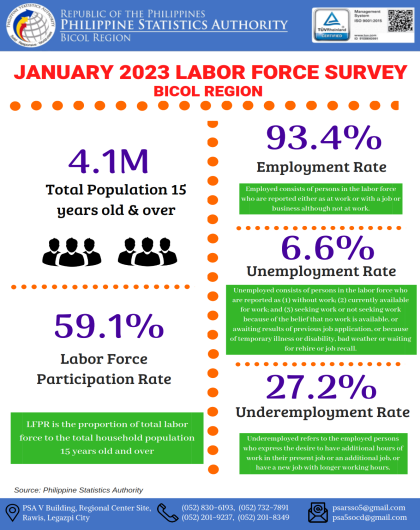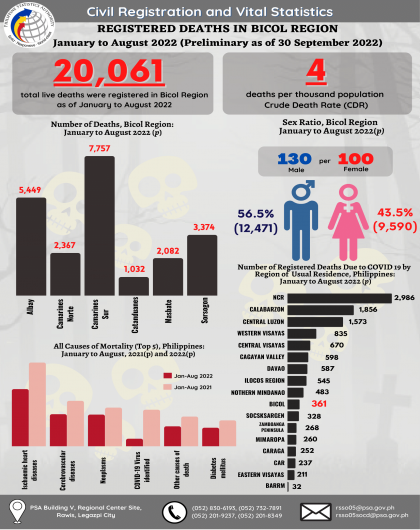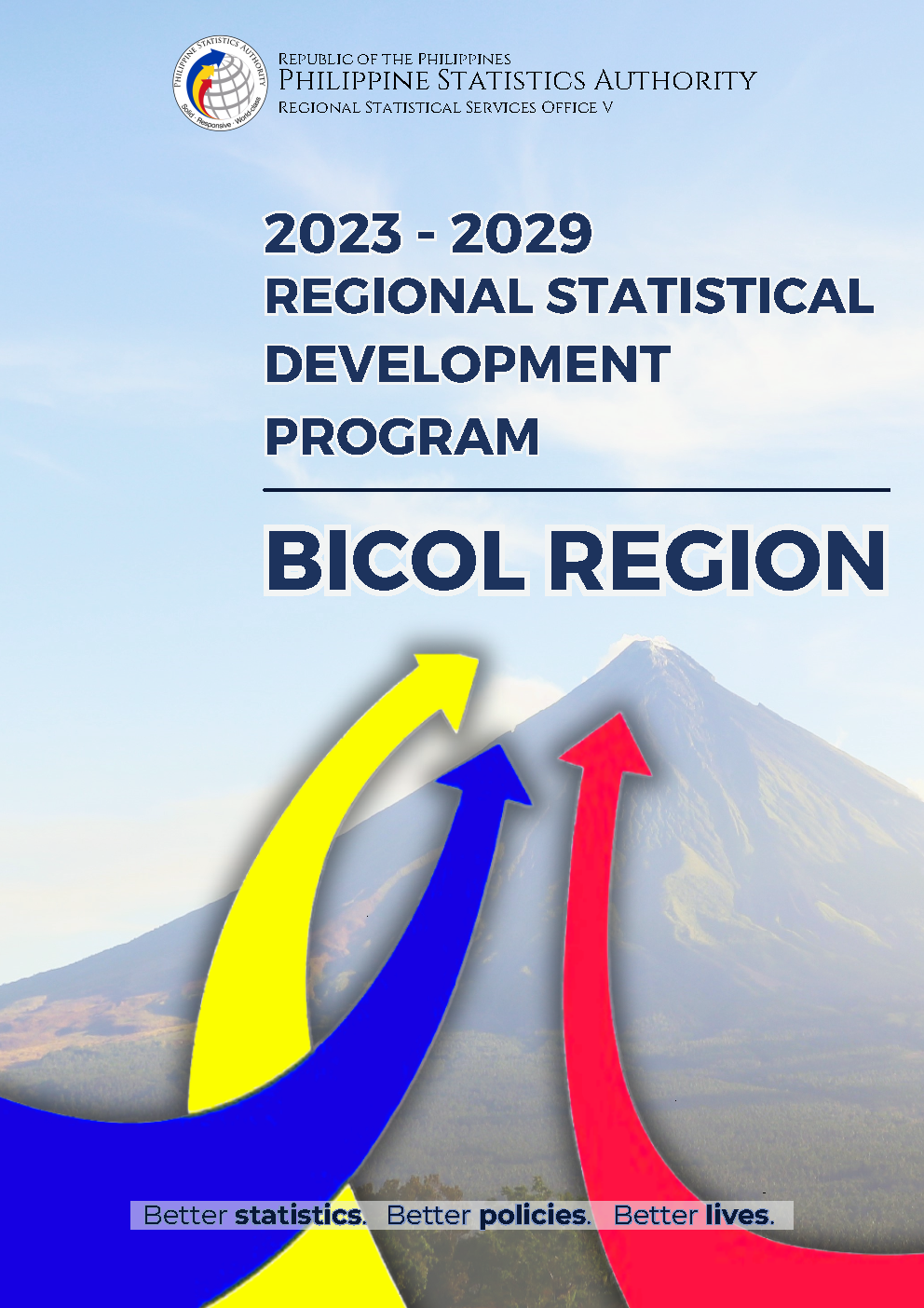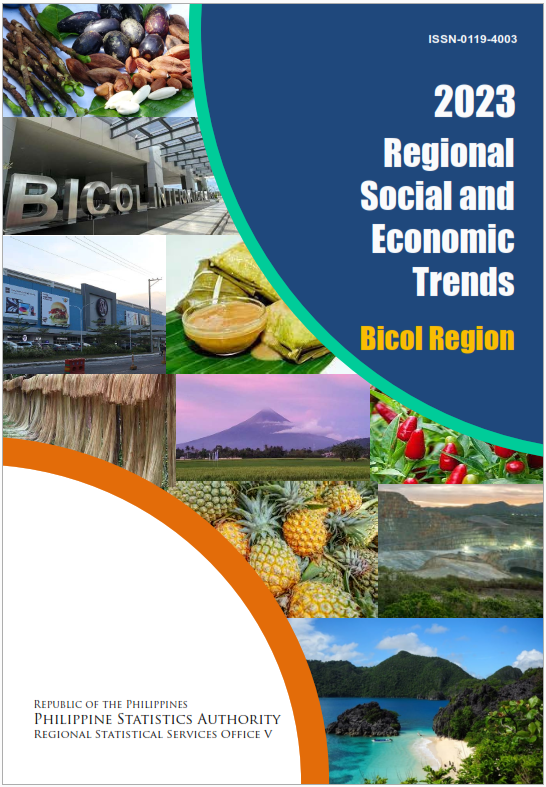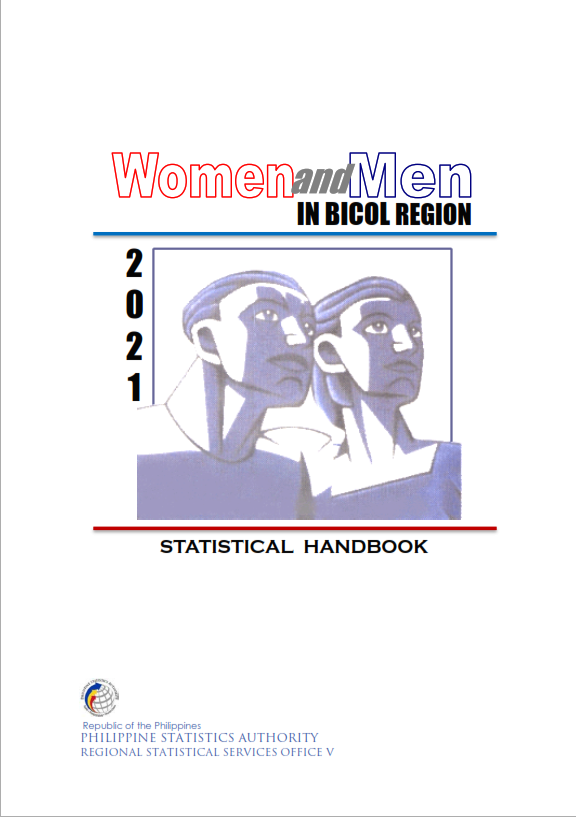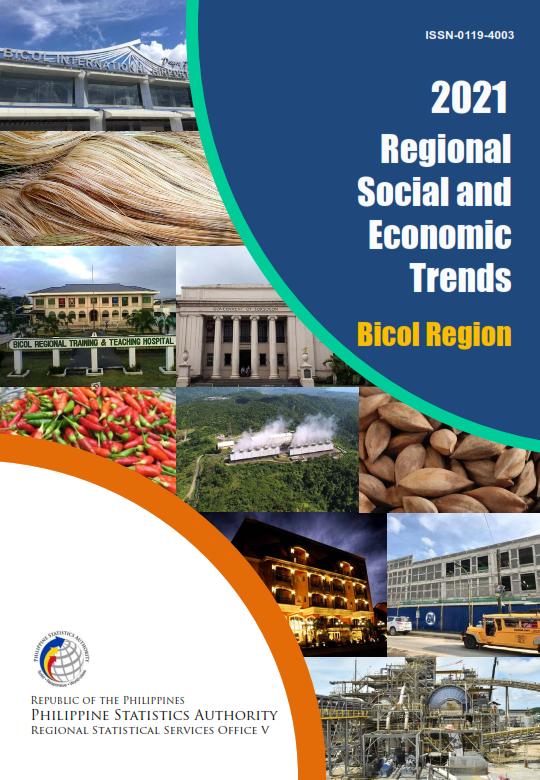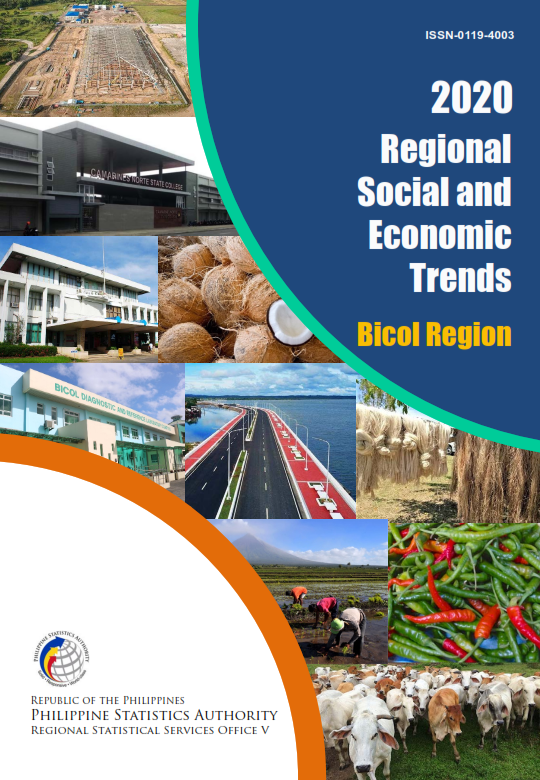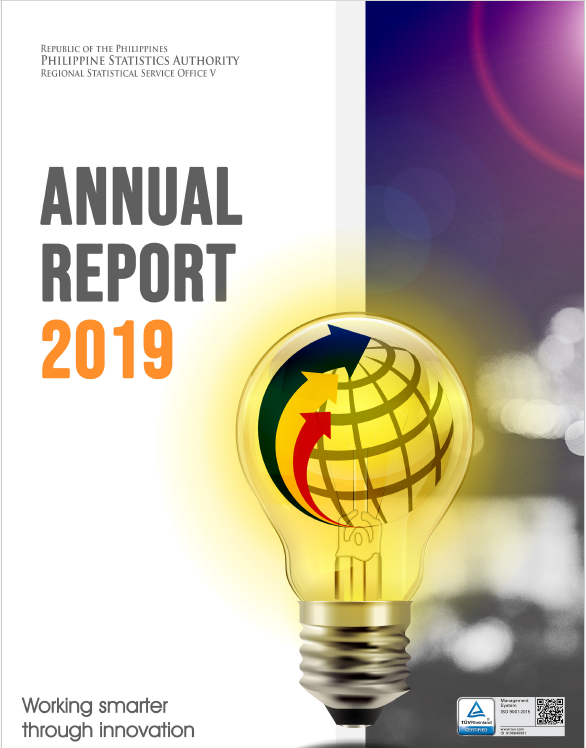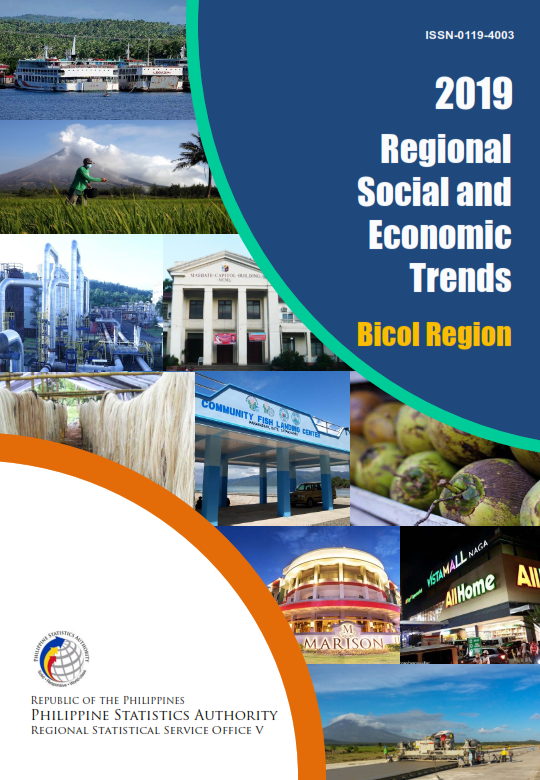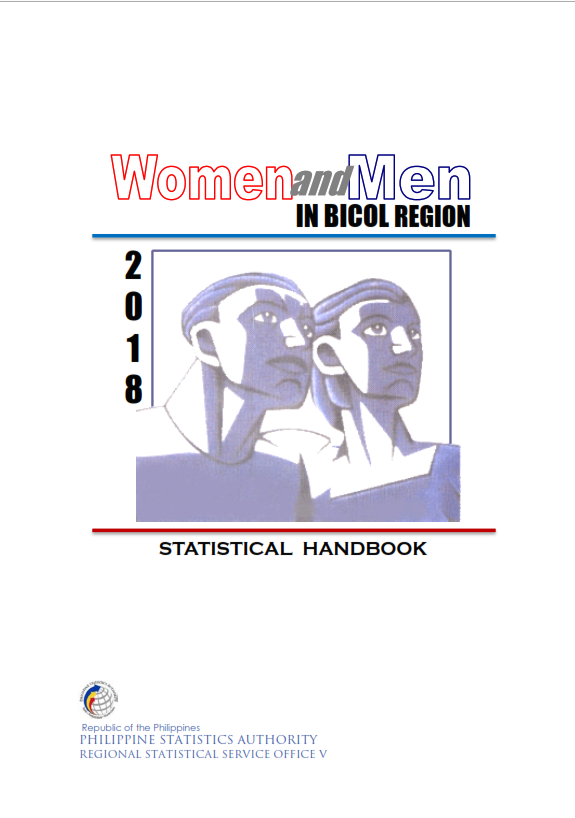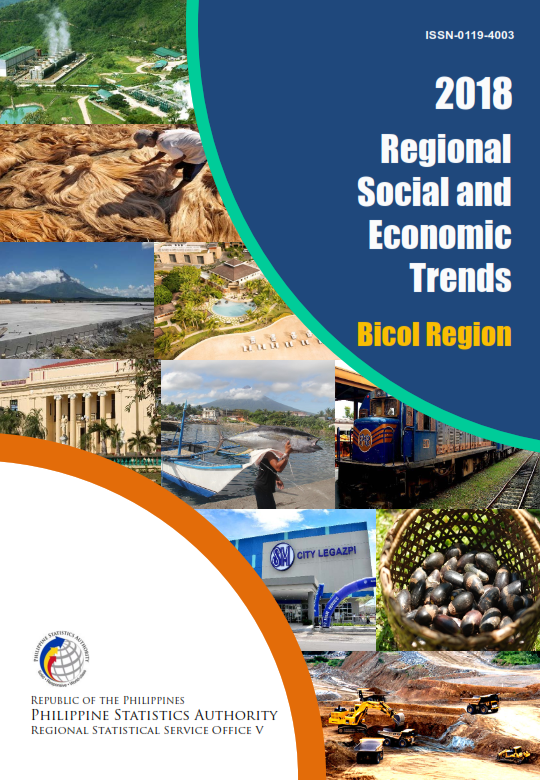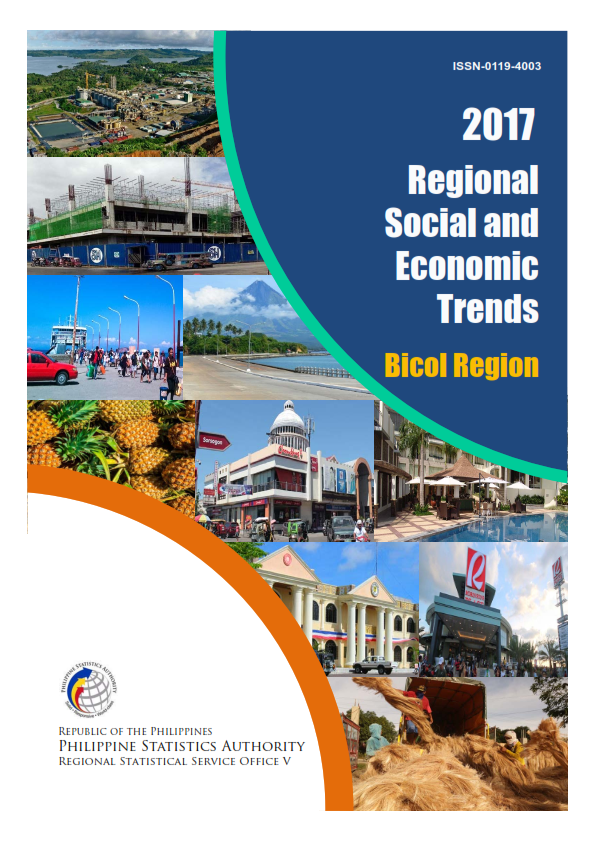
Headline Inflation
Bicol Region's headline inflation or overall inflation decelerated to 3 . 1 percent in January 2024. This is the lowest inflation rate since the 2.8 percent inflation rate recorded in February 2022. Inflation rate was recorded at 4.9 percent in December 2023, while it was 8.3 percent in January 2023.
Main Drivers to the Downward Trend of the Headline Inflation
The downtrend in the overall inflation in January 2024 was primarily brought about by the slower annual increment of food and non-alcoholic beverages to 5.6 percent in January 2024 from 8. 1 percent in the previous month. Also contributing to the downtrend was housing, water, electricity, gas and other fuels which further declined to -3.7 percent during the month from - 1 . 7 percent in December 2023.
Lower annual increments were also noted in the indices of the following commodity groups during the month:
a. Alcoholic beverages and tobacco, 1 1 . 1 percent from 1 1 . 2 percent;
b. Clothing and footwear, 4.5 percent inflation from 5.4 percent;
c. Furnishings, household equipment and routine household maintenance, 2.9 percent from 3.4 percent;
d. Transport, 0.3 percent from 2.0 percent;
e. Restaurants and accommodation services, 5.8 percent from 6.5 percent; and
f. Personal care, and miscellaneous goods and services, 2.8 percent from 3.6 percent.
On the contrary, the index of information and communication exhibited a higher annual increase of 3.9 percent during the month from 3.8 percent in December 2023.
Meanwhile, the indices of the following commodity groups retained its previous month's annual rate:
a. Health, 2.2 percent;
b. Recreation, sport and culture, 4.4 percent;
c. Education services, 3.2 percent; and
d. Financial services, 0.0 percent.
Main Contributors to the Headline Inflation
The top three commodity groups contributing to the January 2024 overall inflation were the following:
a. Food and non-alcoholic beverages with 80.8 percent share and 2.5 percentage points;
b. Restaurants and Accommodation services with 1 1 . 9 percent share and 0.4 percentage point; and
c. Alcoholic beverages and tobacco with 7.5 percent share and 0.2 percentage point.
Food Inflation
Food inflation at the regional level slowed down to 5.8 percent in January 2024 from 8.4 percent in the previous month. In January 2023, food inflation was higher at 9.6 percent.
Main Drivers to the Downward Trend of Food Inflation
The deceleration of food inflation in January 2024 was primarily brought about by the faster year-on-year decline in the index of vegetables, tubers, plantains, cooking bananas and pulses to -23.9 percent during the month from -5.9 percent annual decrease in December 2023. Fish and other seafood also contributed to the downtrend with an annual decline of -0.1 percent in January 2024 from 4.5 percent in December 2023.
In addition, lower inflation rates were noted in the indices of the following food items during the month:
a. Corn, 10. 8 percent from 1 1 . 2 percent;
b. Flour, bread and other bakery products, pasta products, and other cereals, 4.5 percent from 5.0 percent;
c. Meat and other parts of slaughtered land animals, -0.7 percent from 0.7 percent;
d. Milk, other dairy products and eggs, 5. 1 percent from 8.8 percent;
e. Oils and fats, -8.9 percent from -7.4 percent;
f. Fruits and nuts, 8.0 percent from 8.5 percent; and
g. Sugar, confectionery and desserts, -3.5 percent from -0.3 percent.
On the contrary, rice inflation accelerated to 34.0 percent during the month from 28.4 percent in December 2023, and ready-made food and other food products, n.e.c. to 5.0 percent in January 2024 from 4.8 percent in the previous month.
Main Contributors to the Food Inflation
Food contributed 78.6 percent or 2.4 percentage points to the overall inflation in January 2024. The food groups with the highest contribution to food inflation during the month were the following:
a. Cereals and cereal products, which includes rice, corn, flour, bread and other bakery products, with 1 1 4 . 8 percent share and 6.7 percentage points;
b. Milk, other dairy products and eggs with 5.2 percent share and 0.3 percentage point; and
c. Fruits and nuts with 4.9 percent share and 0.3 percentage point.
Table 1. Year-on-Year Inflation Rates of Selected Food Items in Percent, January 2023, December 2023 and January 2024: Bicol Region
(2018= 100)

Table 2. Inflation Rate (IR) and Purchasing Power of the Peso (PPP) in Bicol Region, by Province: January 2023, December 2023 and January 2024
(2018= 100)

Table 3. Year-on-Year Inflation Rate (IR) by Commodity/Service Group, January 2023, December 2023 and January 2024: Bicol Region
(2018=100)

Table 4. Consumer Price Index for All Income Households in Bicol Region, by Province and by Commodity/Service Group: January 2024
(2018=100)

Table 5. Consumer Price Index and Monthly Percent Change For All Income Households by Commodity Group: December 2023 and January 2024
(2018=100)




